Today we welcome one of the finest indie writers in the business to KitFosterFiction - Blogger, Podcaster, author and all-round genius Robert Chazz Chute.
A writer of unparalleled wit and honesty, he is best described in his own words:
"Robert Chazz Chute (born 1964 - Gee, let's not speculate!) is in suspense, figuratively and literally. He is a former newspaper journalist and magazine columnist who has worked in various worker drone capacities in book publishing's hive mind. The winner of seven writing awards and nominated for a Maggie, he writes creepy stories from his bunker office under a volcano somewhere in the Canadian Shield guarded by a clone army of ninja monkey assassins. He doesn't take himself too seriously, even when writing about himself in the third person."
So, let's hear what he has to say!
Welcome, Chazz!
You
have a long history of working within the publishing business - so, what made
you take the leap and go indie?
I’d been writing for
years without sending much anywhere. I’d write a short story and send it off to
contests or magazines here and there, but I didn’t pursue it seriously for
several years. Dabbling is a bad thing. Once upon a time, I even quit. I worked
in Toronto for several publishers of varying and dubious repute and one night,
after an argument with a coworker, I went home and began to write out of anger
and bitterness. It wasn’t any good and I think I stopped writing for about five
years maybe. Quitting is worse than dabbling.
There was a long gap
where I pursued other things. I worked as a massage therapist — what comedian
Marc Maron refers to as the last resort of the thwarted. It wasn’t that bad,
but the need to write for a living runs too deep to deny. When the economy went
south in my area, I didn’t have much to lose so it was time to take the risk of
really putting myself out there. Poverty is as good a time for a mid-life
crisis as sudden wealth. That’s the ugly advantage of Nothing to Lose.
What
are the challenges and benefits of indie publishing?
The challenge is to
take it every bit as seriously as a big publishing company. Self-publishing’s
young so it has room to mature. Too many people are suspicious of
self-publishing, that it’s somehow not “real.” I have no idea what they’re
talking about. The people you have to appease are the same: the readers. The
process has been democratized so it’s up to the readers and ultimately sales
numbers decide a book’s success. The idea that editors are gatekeepers? The
gatekeepers are no more fools or geniuses than your average writer. They don’t
have a special formula for identifying books of value. Their track records
reflect that.
The benefits? I’m
working harder at this business than I ever did with my old businesses, but I
feeI more freedom and love it. I work with killers and weird people all day,
but now just in my head. You’d never know it to meet me, but I’m an introvert
struggling to talk because it’s an extrovert’s world.
I was never meant to
work for anyone else. My energies and my practice are now aligned. I work for
the readers, of course, but no one’s telling me what to do. Writers think
they’re special. We aren’t, but we have to maintain that illusion to continue
such an ego-driven endeavor as writing fiction and expecting anyone to read our
stories.
You’ve got to really
want to do this so it’s not a hobby. It’s at least a part-time job for most. I
find the marketing takes up as much and sometimes more time than the writing,
depending on the day. On the days I do my podcast, I write less in hope that my little internet radio show will draw
in more readers. I also blog every day for the benefit of my fellow writers on my writing site. It takes a lot of time,
but almost all of it is fun. The hardest part is waiting for reviews and
getting strangled in obscurity. Despite some successes, I’d say I’m still not
on the radar. That changes this year. Bet on it. I’m in the process of using my
clone army of ninja monkey assassins for world domination. (Please note: They
are ninja monkeys who happen to be assassins. They are not an army of assassins
out for ninja monkey blood. Just had to clear that up because you know someone
will ask.)
Of
your novels, short stories and short story collections, which was the most fun
to write, and why?
Tough question. I
think the next one is always the most fun to write because it’s still coming
together in my mind so I don’t have to confront my poor typing skills. End of the Line (from Sex,
Death & Mind Control) is a fan favorite, I know, but it was
laborious to write. Same with Sidewalkers
and Cuthian’s Wake. Those are duels
dancing across sensitive time bombs, but it took lots of rewrites to make the
stories come together as puzzle pieces.
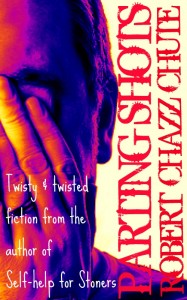 I think Self-help
for Stoners was most fun to write because its creation skipped along.
It came together easily and quickly. My favorite stories, like Another Day at the Office (from Self-help for Stoners) always have that Usual Suspects element where the twist
comes but there’s an emotional impact, too. To be successful, it can’t simply
be, “A-ha! Chazz fooled me again!” If it’s only twists, that gets tiring. I
like to sprinkle compelling facts and laughs along the way so the reader gets a
puzzle solved, but they are left wanting more.
I think Self-help
for Stoners was most fun to write because its creation skipped along.
It came together easily and quickly. My favorite stories, like Another Day at the Office (from Self-help for Stoners) always have that Usual Suspects element where the twist
comes but there’s an emotional impact, too. To be successful, it can’t simply
be, “A-ha! Chazz fooled me again!” If it’s only twists, that gets tiring. I
like to sprinkle compelling facts and laughs along the way so the reader gets a
puzzle solved, but they are left wanting more.
How
much of yourself and your own life (if any) do you put into your stories and
characters?
All our experiences
distill into our work, sometimes in ways that I only discover in the writing
process. I grew up in villages in Nova Scotia and moved to cities as soon as I
could. I don’t think it’s a coincidence that the theme of escape and life
change recurs in my short stories and novels.
A lot of little
anecdotes pop up here and there. In the crime novel I’m writing now, there’s an
incident where someone gets his nose broken on a military exercise. The core of
the event is true. Then I embellished it so I doubt the person who told me the
story would recognize it. Things get wild and the characters are often odd or
special in some way, but drawing on real life is necessary to get the
verisimilitude I want in my books.
Do
you have any weird writing habits?
I don’t live like a
normal person. I write full-time, but a lot of that involves thinking before
writing. I’m not procrastinating over coffee. I’m thinking about my next move.
I’m not napping. I’m dreaming up the next twist. I often don’t go to bed until
2 or 3 a.m. I draw on a huge library and research a lot, but not in an
organized way. Any reading I do is research. I can spend all morning lost in
Wikipedia.
I have an obsession
with dictionaries of all kinds so, in This
Plague of Days, I gave the kid Asperger Syndrome and an obsession with
Latin dictionaries. Often I’ll take medical trivia or a factoid from mob lingo
and extrapolate from that. For instance, a “throw-down” is an untraceable
pistol an FBI agent might drop to justify shooting the unarmed goon he wants
dead. (Yes, that has happened. In fact, it’s happened so often, there’s a term
for it!)
Which
authors have influenced your work most?
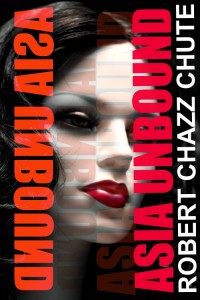 Always and forever,
William Goldman. Lawrence Block once said that reading Goldman is like watching
a master do card tricks while drunk. Goldman is better known for his
screenwriting (The Princess Bride,
Marathon Man, All the President’s Men and many more). However, it’s his
books that get me. The Color of Light
is my favorite novel. Others? Chuck Palahniuk’s got an artistic sensibility and
sense of humour I share. I love Vonnegut. I write dark stuff, but I’m a
disappointed humanist like Vonnegut was. I want to see the good but you have to
look past an awful lot of bad to stay positive.
Always and forever,
William Goldman. Lawrence Block once said that reading Goldman is like watching
a master do card tricks while drunk. Goldman is better known for his
screenwriting (The Princess Bride,
Marathon Man, All the President’s Men and many more). However, it’s his
books that get me. The Color of Light
is my favorite novel. Others? Chuck Palahniuk’s got an artistic sensibility and
sense of humour I share. I love Vonnegut. I write dark stuff, but I’m a
disappointed humanist like Vonnegut was. I want to see the good but you have to
look past an awful lot of bad to stay positive.
You've
won multiple writing awards, and been nominated for a Maggie - any tips for
other aspiring writers wishing to achieve such successes and recognition?
You have to write a
lot and write well, of course, but I’m the wrong one to ask because more often
than not when I read a first place award winner, I wonder what the judges saw
that I don’t. I think there’s still a legacy in these contests that eschews
plot for character so a lot of the stories that win don’t actually have an end
per se. It’s the pseudo-intellectual, MFA effect. That’s not a story as far as
I’m concerned. I don’t want a too-subtle character sketch. I want stuff to
happen. Events must occur! Move me
with sharp and precise turns of phrase. Make me laugh. Surprise me. As a
reader, I want to be satisfied with the story and take away something
memorable. For instance, people are still quoting Fight Club years later. That’s a story well told with style and
substance and a subtext that’s deep.
I have a friend who
writes. He’s still waiting for trad publishing to discover him. I tell him to
self-publish and show them you can do it without them. Then when agents call,
you can politely ask: What do I need you for? Also, I don’t think most literary
magazines are worth your time as an avenue into the industry. Not anymore. Not
for years past. You can easily have a blog and publish your work to a much
larger audience. Literary mags are on life support. Stand up and be your own
publisher. The wait is shorter and the way is surer because it’s your way.
What's
in the pipeline for Robert Chazz Chute? Have you any cheeky wee tasters of
forthcoming releases to whet our appetites?
I’ll be announcing the
crime novel soon. It’s very action-packed with some sweet and heartbreaking
moments. That’s going to make a big splash and will definitely be a series. This Plague of Days will be coming soon.
It’s quite a saga about a family fleeing a plague. Then there’s the beginning
of the Poeticule Bay Series. It’s suspense in the town in
Maine I keep going back to in several of my short stories.
Poeticule Bay is an amalgam of the little places I grew up in and exploits
small-town claustrophobia and people with secret, dark pasts. I also have to
get to revisions on Sex, Death &
Romeo, a novel about a young actor wannabe who gets targeted after a
classmate dies of an overdose and he gets blamed. It has a surprising injection
of Shakespeare in it. My books are in some ways all over the map, but it always
comes back to complex characters in suspenseful situations. Surprising the
reader is paramount, but the story must always be contextualized so when you
read it, you’ll think: That was a wild ride, but maybe that could happen, too.
Do you have Costco in Scotland? They’re cheaper if you buy in
bulk. They’re louder and throw more poop than my first clone army. Those were
Stormtroopers. The white armour was spiffy, but they were too easily fooled. My
ninja monkey assassins attacked the Jedi who dared to tell them, “These aren’t
the droids you’re looking for.” (Fun fact: Though lightsabers are deadlier than
katanas, you can overwhelm a Jedi if you have enough ninja monkey assassins who
also happen to be Siths. Siths cost more, but they’re worth it and my
fortressed realm is secure.)
Follow Chazz and his work at: www.chazzwrites.com and www.allthatchazz.com.



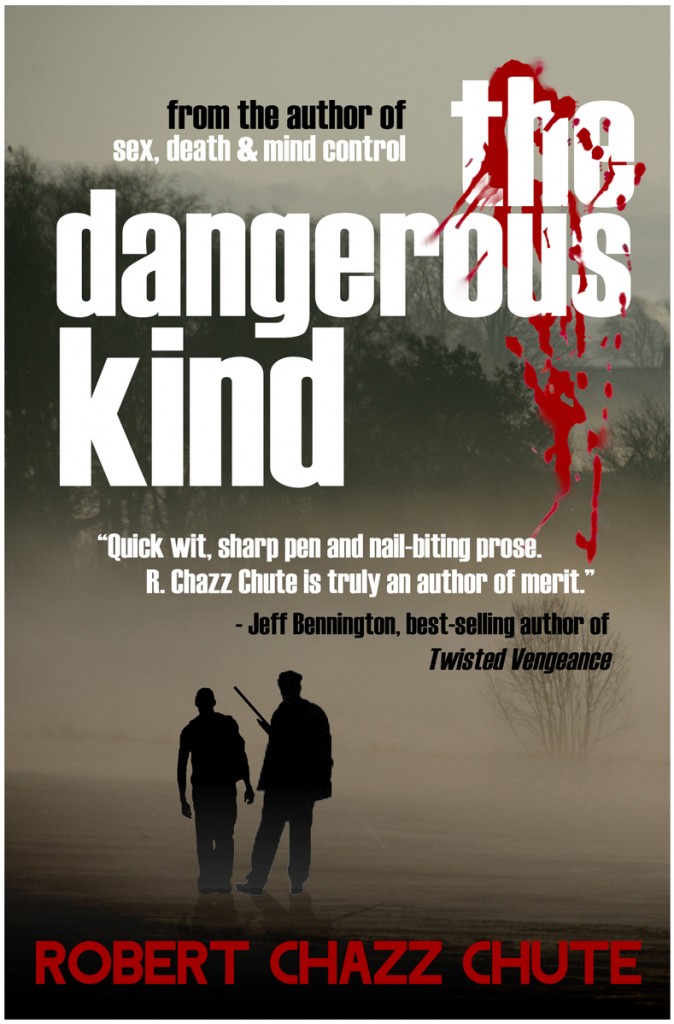
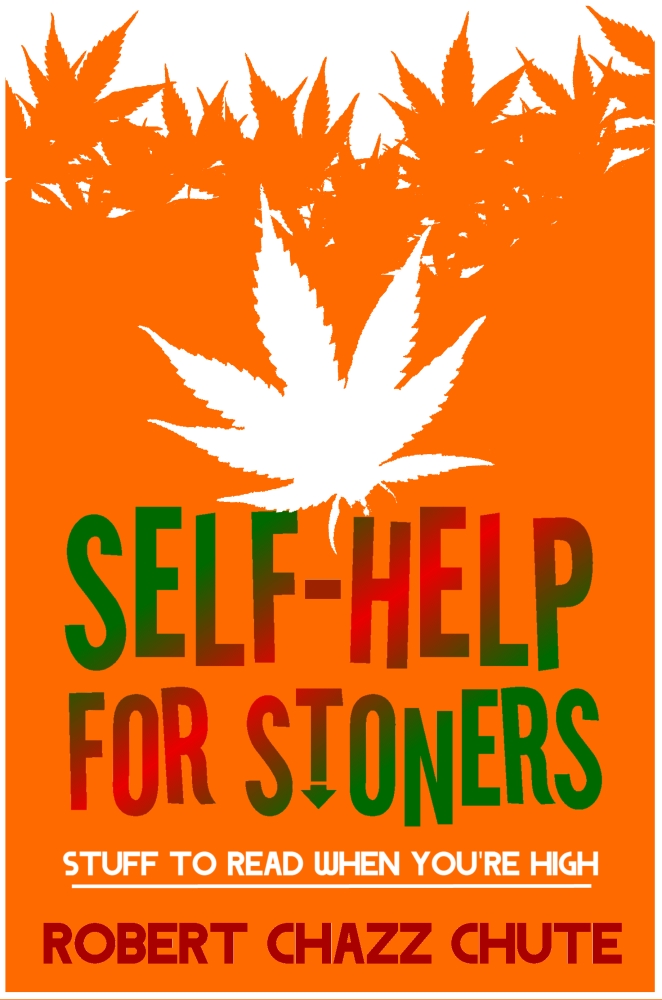
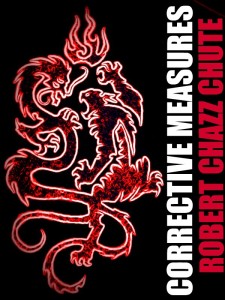
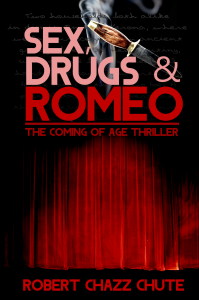
Excellent interview. I'm heading to Costco immediately after work today . . .
ReplyDeleteAmazing blog and very interesting stuff you got here! I definitely learned a lot from reading through some of your earlier posts as well and decided to drop a comment on this one!
ReplyDeleteNice post, things explained in details. Thank You.
ReplyDelete